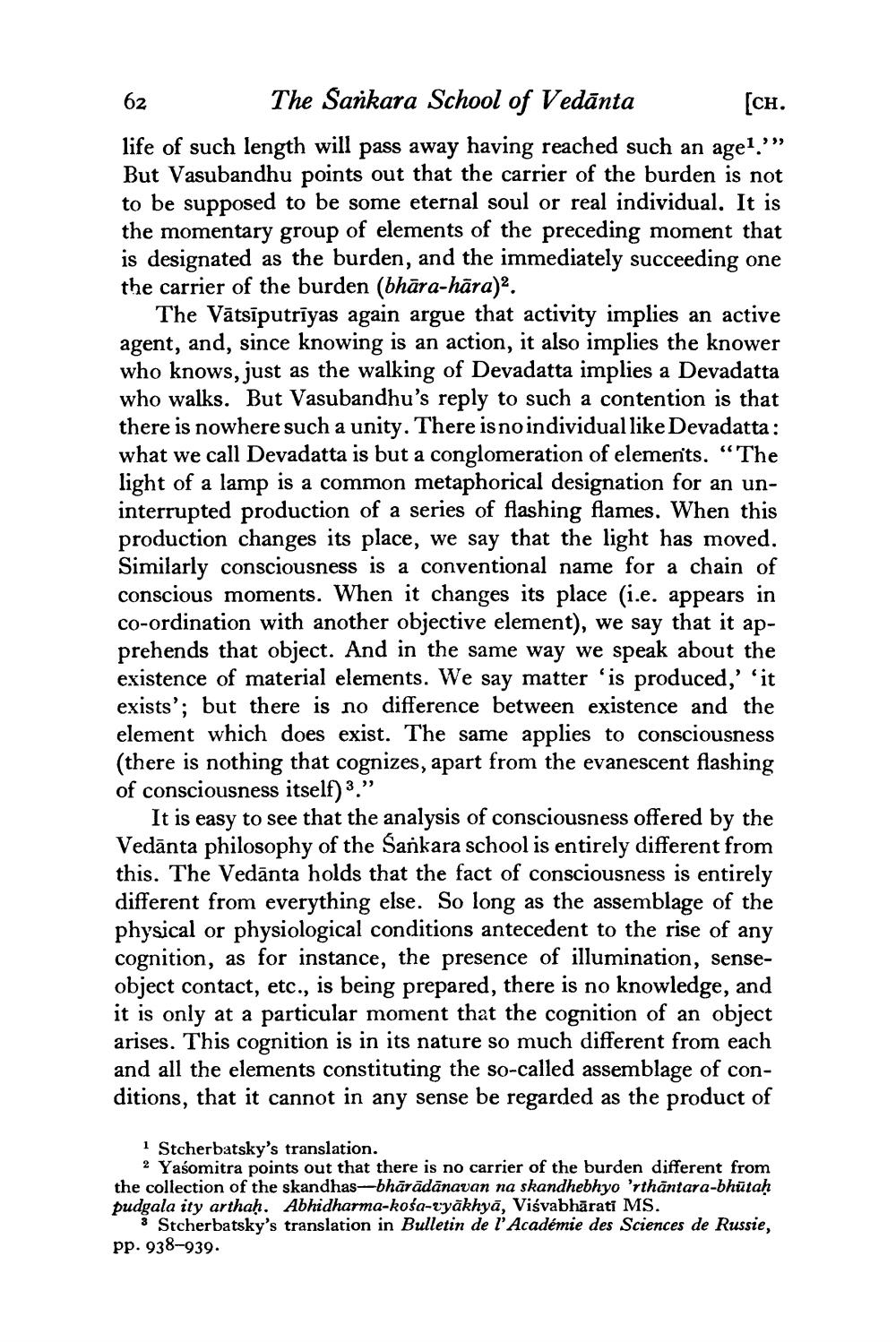________________
[CH.
62
The Sankara School of Vedānta life of such length will pass away having reached such an agel."" But Vasubandhu points out that the carrier of the burden is not to be supposed to be some eternal soul or real individual. It is the momentary group of elements of the preceding moment that is designated as the burden, and the immediately succeeding one the carrier of the burden (bhāra-hāra)2.
The Vātsīputriyas again argue that activity implies an active agent, and, since knowing is an action, it also implies the knower who knows, just as the walking of Devadatta implies a Devadatta who walks. But Vasubandhu's reply to such a contention is that there is nowhere such a unity. There is no individual like Devadatta : what we call Devadatta is but a conglomeration of elements. “The light of a lamp is a common metaphorical designation for an uninterrupted production of a series of flashing flames. When this production changes its place, we say that the light has moved. Similarly consciousness is a conventional name for a chain of conscious moments. When it changes its place (i.e. appears in co-ordination with another objective element), we say that it apprehends that object. And in the same way we speak about the existence of material elements. We say matter ‘is produced,' 'it exists'; but there is no difference between existence and the element which does exist. The same applies to consciousness (there is nothing that cognizes, apart from the evanescent flashing of consciousness itself) 3.”
It is easy to see that the analysis of consciousness offered by the Vedānta philosophy of the Sankara school is entirely different from this. The Vedānta holds that the fact of consciousness is entirely different from everything else. So long as the assemblage of the physical or physiological conditions antecedent to the rise of any cognition, as for instance, the presence of illumination, senseobject contact, etc., is being prepared, there is no knowledge, and it is only at a particular moment that the cognition of an object arises. This cognition is in its nature so much different from each and all the elements constituting the so-called assemblage of conditions, that it cannot in any sense be regarded as the product of
1 Stcherbatsky's translation.
2 Yaśomitra points out that there is no carrier of the burden different from the collection of the skandhas-bhārādānavan na skandhebhyo 'rthāntara-bhūtah pudgala ity arthah. Abhidharma-kośa-ryākhyā, Viśvabhārati MS.
3 Stcherbatsky's translation in Bulletin de l'Académie des Sciences de Russie, pp. 938-939.




